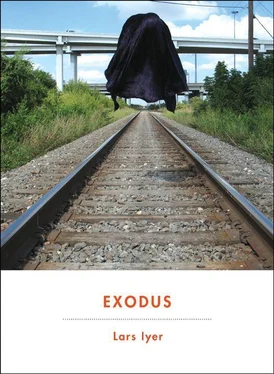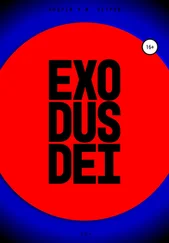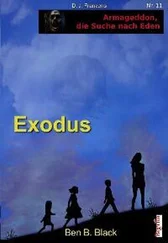What did he mean by this point, or that one? we asked him. Stupid as we are, our interest flattered him. We were like a dry run, in our idiocy, for an encounter with a fellow thinker, an ally of thought, in conversation with whom our friend from Taiwan (W.’s friend from Taiwan) could rise to his true vocation.
And what would we do, if, when in company with our friend from Taiwan (W.’s friend from Taiwan), another thinker came along? What, if a conversation between thinkers truly began, if idea met with idea, like eagles rising into the air? We wouldn’t get out our notebooks, W. made me promise that. I wouldn’t take out my camera, my infernal camera, W. made me promise that, too. And we wouldn’t chatter; we wouldn’t say a thing: W. doesn’t have to tell me that.
W.’s house, Plymouth. A pit stop for supplies, and to pick up books.
Why do I always take my trousers off in his living room? W. wonders. On one level, the answer is obvious: I am growing too fat for them; their waistband cuts uncomfortably into my swollen belly. But then I never take my trousers off elsewhere, W. has noticed. Only in his house, with him and Sal. Only in his front room, whether the shutters are open or closed.
Once, when a friend of theirs called round unexpectedly, I leaped up, frantically looking for my trousers. Too late! — ‘Lars always takes his trousers off when he visits’, W. had to explain. I feel some sense of shame, at least, W. says. He didn’t think I did, but there it was: shame over my trouserlessness. My public trouserlessness.
But why am I not ashamed of anything else? W. wonders. My ignorance, for example. My laziness. He thought he’d taught me, W. says. He thought I’d learnt something. But somewhere inside, I’m still an ape on the savannah. Somewhere, I’m still sitting back on my haunches and looking out over the expanse.
Food was plentiful back then, on the savannah, wasn’t it? W. says. Life was easy. I wasn’t an alpha male, of course, but nor was I an omega one. So long as I refrained from threatening my fellow apes, from baring my teeth as apes will, I was not threatened in my turn.
But something was missing on the savannah, wasn’t it? W. says. Something marked me out from my fellow apes. Was that why I learned to walk upright and wear shoes? Was that why I learned not to holler and whoop? But I never gave up my ape dreams , W. says. I never forgot to long for those great bunches of bananas and clear pools of the jungle.
He can tell I’m still an ape, W. says. It’s the way I hold my pen — the way my hand curls in towards my chest. And there’s that distant look I get, W. says, as though I long only to tear open my shirt and whoop. But my apish spontaneity is long gone, W. says. I am no better off than my miserable comrades in the zoo, my poor eyes burning from monitor glare, and my clumsy fingers missing the keys.
The books I try to read! The thinkers I try to imitate! At times, he thinks he’d put a stop to it, if he didn’t see something of himself in my efforts, W. says. If he didn’t feel as though he, too, were part ape.
Sometimes, W. wonders whether he is my captor — whether he was the one who trapped me on the plains. But it wasn’t his fault! I was placed in his care, W. says. Didn’t he tenderly look after me? Didn’t he suckle me as gently as an orphaned fawn?
Once, I was an ape with no idea of trousers. And now, thanks to him? A half-ape, for whom trousers are a tyranny.
He, too, was once looked after, W. says, lovingly tended by the older Essex postgraduates. He knew comparatively little when he first arrived at Essex, W. says. He had only a sense that he had to think against Britain. As though thought were a way for him to struggle back to Canada. As though he might reach a kind of Canada of thought .
And years later, when he saw the new postgraduates arrive? When he saw them arriving from the four corners of the country? He was tender with them, W. says — fatherly, perhaps even motherly , never laughing when they mispronounced the words hyperbole and synecdoche , or when they said the last syllables of Derrida to rhyme with breeder , or when they said Del-ooze when they meant Del- erze ?
He understood when the new postgraduates wept into their pillows, W. says. He stroked their hair during their night-sweats and bad dreams. He knew why they ground their teeth at night, why their jaws ached, why their eyes were dull: for wasn’t he, too, British? Hadn’t he, too, sought to escape his country at the University of Essex?
Late night, W.’s living room. An empty bottle of Plymouth Gin before us.
W. remembers the guest speakers of Essex University. Envoys from Old Europe. Thinkers who had been taught by the gods of Old Europe — by Heidegger and Merleau-Ponty — and who spoke of the gods of Old Europe. Thinkers, who were friends and contemporaries of Deleuze, of Foucault, and who spoke of the world of Deleuze and Foucault. Thinker-experts, who’d spent their whole lives in the archives, or studying in seclusion with the works of a Master. Thinker-militants, who’d hung out with Debord and Vaneigem, and who could pass on stories of Debord and Vaneigem.
Literary scholars, who read in twenty-seven languages. Philosopher-scientists with advanced degrees in astrophysics and molecular biology. Thinker-mathematicians, fascinated by dissipative structures and complex systems . Thinkers of irreversibility and indeterminism , of strange loops and paralogic …
Neurophenomenological thinkers, W. says. Neo-Spinozist thinkers. Neo-Leibnizians. Nominalists and anti-nominalists. Mathematical thinkers and poetical thinkers.
Thinkers who’d had distinct phases in their thought. (‘In my early writings, I was convinced that …’; ‘Later on, I concluded that …’; ‘For a long time, it was my impression that …’) Thinkers whose work was the subject of conferences and roundtables.
Thinkers who hated other thinkers (‘Don’t mention Deleuze to him!’). Thinkers who’d broken with old friends over intellectual matters. Over political matters. Thinkers at war , for whom philosophical enmity had become personal enmity, had become name-calling, and hair-pulling.
Thinkers who’d shot away half their faces in despair, W. says. Thinkers with deep scars across their wrists. Thinkers who wept as they spoke. Thinkers whose pauses were longer than their talks. Thinkers in breakdown, their lives careening. Thinkers who spoke frankly about the misery of their existence. Thinkers who told of why they couldn’t think, why thought was impossible, why the end had come: their end and the end of the world.
Wild thinkers. Drunk thinkers. High thinkers, nostrils flared, pupils tiny, staying up for whole weeks at a time. Thinkers with missing teeth. With missing eyes . Thinkers with missing fingers, and with great clumps of their hair torn out. Thinkers with terrible rashes around their mouths.
Sick thinkers, walking with two sticks, W. says. Coughing thinkers, who could hardly get out a word. Thinkers who spoke too quietly to be heard. Thinkers who spoke too loudly , half-deafening the front row. Thinker-declaimers, thinker-prophets who might as well have set themselves on fire in the seminar room.
Exiled thinkers, forced out of their home countries for crimes of thought. Lost thinkers, left over from vanished intellectual movements. Bereaved thinkers, in mourning for dead thinker-partners. Betrayed thinkers, who spoke of backstabbings and purgings, of auto-critiques and revolutionary punishment.
Читать дальше












